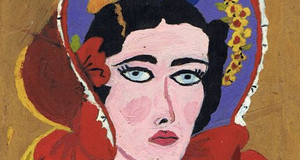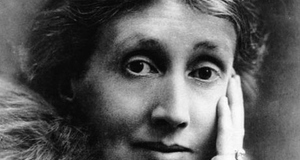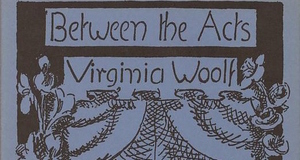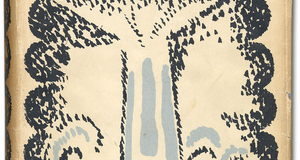The Drama and Romance of Suicide in "Mrs. Dalloway" and "Madame Bovary"
By
2014, Vol. 6 No. 10 | pg. 2/2 | « Flaubert’s representation of suicide varies greatly from Woolf’s; he uses irony to mock the romantic idealization of suicide possessed by Emma and instead focuses on the harsh reality of a material death and its moral emptiness. Emma is often described by her beautiful appearance, just an object with no power of her own. From the beginning, Emma is portrayed as a woman obsessed with living a dramatic life, which she narrates as so: Familiar with the tranquil, she inclined, instead, towards the tumultuous… From everything she had to extract some kind of personal profit; and she discarded as useless anything that did not lend itself to her heart’s immediate satisfaction. (34) Emma even dramatizes her own restlessness and boredom, imagining herself as better than the boring life in which she’s stuck. By juxtaposing the words “tranquil” and “tumultuous,” Flaubert clarifies that Emma not only wants adventure, but also chaos, the out of order. Her desire to live a dramatic life comes off as selfish (“personal profit”) and fleeting (“immediate satisfaction”) rather than as a noble attempt to better herself. She is incessantly searching for purpose in her meaningless life, but cannot find it: The most deplorable thing, surely, is to drag out a life as useless as mine. If our miseries were only of use to some other creature there would be consolation in the thought of sacrifice! (218) Although much earlier in the novel than the actual suicide scene, Emma already establishes that she would kill herself, if only to get others to notice her. Emma here focuses on the effects of her actions on “some other creature,” rather than acting for herself. She turns herself into a commodity: something that has no inherent value on its own (“useless”), that only has meaning in the context of being used by others (“of use to some other creature”).Unlike Woolf, Flaubert rejects the idea that Emma’s sacrifices could have any impact on others. Emma’s constant frustration with her “useless” life is due to her inability to change the situation around her. As a woman in 19th century France, she wholly depends on men, with her only power being voice. After they wed, Flaubert describes Charles as becoming, “The master of this lovely woman” (32). The use of the word “master” expresses Emma’s subjection to the power of her husband. In other words, she is a slave to the men in her life, a “lovely” object for them to control. The only thing that distinguishes her from other eloquent objects is her ability to speak. However, this speech is trivial. Flaubert portrays Emma as more delusional than ever right before her death: She had no memory of the cause of her terrible condition, that is to say the problem of money. She was suffering purely for love, and in remembering him she felt her soul slip from her, just as injured men, in their agony, feel life seeping away, through their bleeding wounds. (293) Emma is deeply in denial of her “terrible condition,” the monetary ruin into which she has led her family. As a result, she chooses instead to cling onto her romantic fantasies of her love life. She sees herself as a fallen soldier with “bleeding wounds,” an honorable and sympathetic victim of a terrible situation, rather than facing reality. In both her monetary ruin and her romantic ruin, her only power is her ability to communicate with those around her. She tries to use her voice to convince the men in her life (Charles, Leon, Rodolphe, Guillaumin) to loan her money and love her. In other words, Emma clings onto the last semblance of control over her own life, her ability to communicate, but even this fails her. While Emma intends to fulfill her romantic fantasy, her suicide marks her failure because she tries to make her suicide into a moral point as well. That is to say, her suicide is done with opposite intentions of Septimus. She kills herself in an attempt to create drama and send a message to the world, but Flaubert makes this impossible; Emma would need an audience – one that would attribute status value to her - for her death to have meaning to her. In death, Emma attempts to realize her voice, but instead she loses her voice; she is transformed from an eloquent speaking object to an inanimate one. Right before Emma poisons herself, she is described as feeling, “A rapture of heroism which was almost joyful” (293). Throughout the novel, Emma chooses to live in a delusional world where she mirrors the heroines from her fantasy novels, but Flaubert continually pulls her back into her harsh and inanimate reality. Emma’s death is her final and most significant attempt to be a heroine, one counteracted by Flaubert’s insistence on the ruthless truth of life. Flaubert contrasts Emma’s dreamlike idealizations with reality through a grotesque representation of suicide. She thinks her death will be simple and painless, a serene way for her to slip into the afterlife: “Oh… death is really nothing very much! she thought; I’m going to fall asleep, and it’ll be all over” (295). While Septimus’ death is quick and painless, Emma’s is a long and physical process. Flaubert brings us through every sickening detail of Emma’s end: Drops of sweat were trickling down her face, which was turning blue and looked as though it had been coated in the fumes from some metallic compound. Her teeth were chattering, her bulging eyes stared vaguely around the room… she was seized by convulsions; she cried out ‘Oh, my god, it’s horrible! (296) In the above passage, Flaubert focuses on her appearance, harshly juxtaposing the beautiful and serene ending that Emma imagined for herself with the gross reality of dying. This sequence constantly reminds the reader that death is not “nothing very much.” Right before her death, Flaubert remarks, She had done, she thought to herself, with all the treachery, the vileness and the endless cravings that tormented her. She felt no hatred now, for anyone; shadowy confusion was settling on her mind, and among all the sounds of this world Emma could hear nothing but the faltering lamentation of her poor heart, soft and indistinct, like the final echoing note of a distant symphony. (297) Emma seems to yearn for an ending like Septimus had, a quick and painless death, followed by someone else remembering her fondly and calling her death noble. Although a chronological impossibility, it’s as if Mrs. Dalloway is one of the novels that Emma adores and models her internal narrative after. Flaubert flatly refuses to let Emma live in her fantasy, once again asserting that real life is not like Mrs. Dalloway. With a ghastly description of her physical state, the author turns Emma into just a dying object: Soon she was vomiting blood. Her lips were drawn tighter. Her limbs were rigid, her body covered in brown patches, and her pulse raced away beneath your fingers, like a taut thread, like a harp-string just before it breaks. Now she started screaming, horribly. She cursed the poison, vilified it, begged it to hurry. (299) The entirety of Part III, Chapter 8 is like this, with Emma speaking to the noble, beautiful, meaningful and dramatic, while in the process being silenced. In this passage, multiple vile things are described as coming out of Emma’s mouth; she is “vomiting blood” and “screaming.” Both are utterances, attempts to speak, but she produces no voice. The very things coming out of her mouth silence her. After Emma has died, Flaubert shows how in an attempt to create beauty, drama, and meaning out of her life, Emma actually destroys any beauty, drama or meaning that her life had. Rather than giving a lovely description of how her soul has departed from her body upon her death, Flaubert simply states, “Her life had ended” (305). Emma spends the entire novel using florid language to describe her life. After her death, there is a shift in narration to a more blunt tone, showing there is no one to idealize Emma anymore. Ironically, in an attempt to be romanticized, she destroys the only voice that would. Charles attempts to create a beautiful funeral for Emma, but in doing so he actually destroys her beauty. In an attempt to put flowers in her hair, “They had to lift her head slightly, and a black liquid streamed out, like vomit, from between her lips” (310). By choosing to have “black liquid” spew from Emma’s mouth, Flaubert sets up the metaphor of ink spilling out. In her death, there is a loss of the narrative voice she once possessed. Although Emma was constantly unhappy in her life, she at least had her beauty and her voice. In her death, she destroys both of those, leaving an ugly, silent corpse. Both novels are essentially about communication. Septimus is unable to communicate in his life, but is able to send a strong message through his suicide. Conversely, Madame Bovary’s only power in her life is her ability to speak, and in her death she destroys her voice. Each novel is revealing of the author’s feelings about suicide, as Woolf romanticizes suicide while Flaubert mocks those like Woolf, insisting that reality is not like that. Although the two novels portray different moral attitidues toward suicide, both show that while suicide can communicate meaning, it cannot make meaning. Septimus’ life was already meaningful when he killed himself – he “plunged holding his treasure.” The effect of his suicide was to communicate this meaning to others, something he could not do in his life. Emma tried to use suicide to make meaning out of a meaningless life; she plunged empty-handed, hoping to find treasure on her way down. As a result, all her suicide did was communicate just how meaningless her life was. ReferencesFlaubert, Gustave. Madame Bovary. Ed. Paul de Man. New York: Norton, 1965. Print. Woolf, Virginia. Mrs. Dalloway. New York: Harcourt, Brace and Co, 1925. Print. Suggested Reading from Inquiries Journal
Inquiries Journal provides undergraduate and graduate students around the world a platform for the wide dissemination of academic work over a range of core disciplines. Representing the work of students from hundreds of institutions around the globe, Inquiries Journal's large database of academic articles is completely free. Learn more | Blog | Submit Latest in Literature |


















